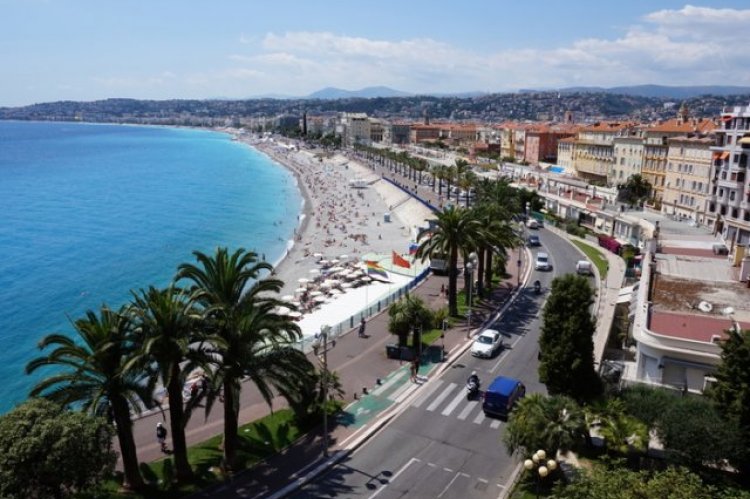Tax aspects of owing property in France or What is real value of your French villa? Part II
Before buying real estate in France investor shall carefully study the list of taxes that he or she will have to pay in the future. Tax optimization issues can be solved through building carefully planned holding structure outside French jurisdiction using experts in this area
Before buying real estate in France investor shall carefully study the list of taxes that he or she will have to pay in the future. To avoid any surprises Glagoliza News continues introducing its readers to French Tax Law in regards to real estate.
Heritage Tax
Under French law, the following assets of an inheritance of a non-resident foreign testator will be taxed according to French tax rules ("Code General des Impots": CGI):
1. Real-Estate situated in France.
2. Shares of French non-corporated firms or incorporated companies, not matter how large or small the capital ownership percentage is.
3. Shares of private (i.e. non-stock market) foreign corporations, if their assets consist of at least 50% of real-estate property situated in France (Art. 750ter 2 CGI).
The inheritance value of the real-estate properties will be calculated according to the "fair market value" method, which we discussed in our previous article on this topic.
In case of direct ownership, the heritage tax amount will be calculated solely from the fair market value, irrespective of any existing mortgages. In case of a SCI, the value of the SCI shares will be calculated in the same way as for the wealth tax, that is real-estate market value minus mortgages. On this difference, heritage tax will be due. So, at least in theory, a high mortgage will reduce the amount of heritage tax.
However, like in case of the ISF tax, third-party mortgages backed by financial assets of the testator or one of the heirs given to a SCI are no longer deductible as liabilities in the balance sheet.
In addition, also French government bonds ("fonds publics francais") and securities emitted by French banks or corporations, are subject to French heritage tax, if they were owned by the foreign testator. This will lead to additional problems and taxes, if such assets were used as collaterals for the mortgages.
There is a progressive rate for heritage tax in France starting from 5% to 45% depending on heritage value. It may reach a destructive 60%, if there is no kindredship at all (i.e. partner of life, if no marriage or "registered partnership" ("pacte civil de solidarite"; PACS) exists).
The heritage tax must be paid by the heirs in full and via bank transfer within a short deadline, otherwise additional interest payments ("interet de retard") of 0,4% per month will be due. This might lead to additional problems, even in case the heirs are willing to sell the properties, in order to pay the taxes. A luxury villa at the Cote d'Azur simply can't be sold within a few weeks, at least not at a reasonable price.
Donation Tax
Donations are taxed in the same way and at the sames rates like heritages in France. For donations from parents to children below legal age, there is a ridiculous low tax allowance of 100.000,- EUR per child and parent, once in every 15 years...
Donations between non-relatives are taxed at a tax rate of 60% of the donation value, without any tax allowances, but with a tax rebate of 305 EUR (in words: three hundred five!) on the tax amount due.

Cannes, France | © Erich Westendarp, CC0 1.0
Real Estate Sales Tax
In case of real-estate sales in France, we must distinguish between fees and fixed taxes, which are due even if the real-estate is sold without any profit, and variable taxes, which depend on the potential profit, which the owner might earn from the sale. As always in France, tax rates are high and rules are complicated.
Fees and Fixed Taxes on Real-Estate Sales
Notary Fees
In France, like in most European countries, the sales contract for a real-estate transaction must be signed at and certified by a state-appointed notary. Besides this, the notary also acts as a kind of trustee for both parties, seller and buyer, and performs all neccessary administrative duties connected to the transaction like filing the documents to the land register office, obtaining certificates of ownership, registration or extinction of mortgages, and so on.
The certifiction fee ("emoluments du notaire") is governed by state regulations and is a fixed percentage of the sales price of real-estate in the contract. At present, the fee is approx. 1,18% of the sales price, including VAT.
In addition to this, the notary gets additional fees ("emoluments de formalites") for his administrative work connected to the real-estate transfer. Also here, the fees at set by clear state regulations. As a general rule of thumb, one should calculate approx. 0,5% of the sales price for these additional fees.
Land Register Taxes and Fees
For registration of the transaction in the public land register, the cadastre, the local communities charge a so-called "registration tax" ("Droits d'enregistrement"). Also this is more or less common in all European jurisdictions. The exact amount may vary sligthly from region to region, but it is reasonable to calculate with an average rate of 5,81% of the sales contract price.
There is no legally suitable way to go around these fees and taxes. Sometimes, people might attempt to write a lower "official" price in the sales contract. But first, this is illegal in France, not only from the point of taxation: Cash payments in France are strictly limited by law (Art. L 112-6 and D112 -3 Code monetaire et financier) to 1.000 EUR between French entities and a maximum of 15.000 EUR, if non-resident foreigners are involved. Second: From the ISF calculation, the tax office precisely knows the fair market value ("valeur venale reelle") of the property involved. Should these two prices differ too much, the tax authorities may challenge the contract price and make up their own calculation of the sales taxes. In addition, this might backfire later, should the property been sold again in the future. Because a lower initial purchase price might then lead to a higher taxable sales profit in the future, and real-estate profit taxes will be much more critical than the registration taxes now.
It's also of little help to sell the shares of the SCI instead selling the property itself. Also, sales of shares of a non-incorporated firm are due to the registration tax in France. If more than 50% of the firm's asset consists of real-estate, the firm is classified as a Real-Estate Holding Company ("Societe a preponderance immobiliere"; SPPI), and sales of such shares are due to 5% registration tax (SPPI, 726-I-2° CGI).
Profit Taxes on Real-Estate Sales
The sales profit for a real-estate property in France is calculated as the difference between the sales contract price minus the initial purchase price minus the costs for major improvements of the property. Major improvements means real modifications, like the construction of a swimming-pool or building an additional residential wing. Costs for normal maintenance and operation are not deductible. There are also some allowances for realtor and notary fees, and some special rules for properties acquired before 2012, but they are not substantial.
At present, the effective tax rate on capital appreciation for real-estate is 34,5%, with the precise value changing from year to year because of ever-changing legislation. In addition, social security taxes ("prelevements sociaux") are due, even if the owner is a nonresident foreigner and will never get any benefits from the French social security system! And as this might not be enough, there is an additional "Special Tax" ("surtaxe immobiliere") on extremely high profits. "Extremely high" means for the French tax officers all real-estate sales profits of more than 50.000 EUR, which they will then tax with their 6% Special Tax.
For a high-class property at the French Mediterranean coast, where real-estate prices are high and rising, this could mean millions of Euros in profit taxes, should the villa be sold sometime in the future.
As we can see, the French tax code on real-estate taxation is not only complicated, but brings really punitive tax rates on heritage and sales profits, if the real-estate property is more than a ordinary middle-class worker's house or apartment. Tax allowances for heritage and tax-free profits are ridiculously low, and the tax privilege for a primary-residence home is not available for non-resident foreigners.
But if despite of all these hurdles, you love France and want to buy luxury house or apartments in this European country, and you have enough money to do that, then all the tax optimization issues can be solved through building carefully planned holding structure outside French jurisdiction using experts in this area, such as Benesteem Executive Consulting Services.
For more information on this issue you can click “Ask the expert” button below.
Acknowledgement: Glagoliza News thanks Benesteem Executive Consulting Service, Switzerland for providing expert information on this issue.
 |
Ask the Experts! |

